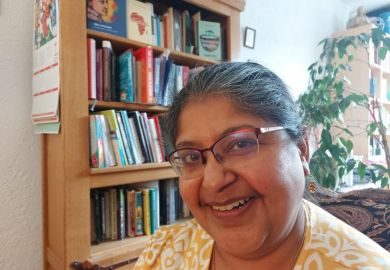Most of us have, at some point, sought refuge in the contemplative comfort of a well-catalogued library, and have, like Jorge Luis Borges' blind librarian in The Library of Babel , feared the spiralling vastness of knowledge and fountain of words entombed there. To Matthew Battles, a rare-books librarian at the Houghton Library, Harvard University, this is his day-to-day world. In his book he sets out to "look for the points of transformation, those moments where readers, authors and librarians question the meaning of the library itself".
We travel comprehensively from the clay tablets of ancient Mesopotamia to the legendary libraries of Alexandria, the ordered Islamic "Houses of Wisdom", the Jewish genizah at Cairo, the repository for all "dead" paper, and travelling home libraries. The overall impression is that a library may be a guardian of the word, but it also guards against the wrong sort of words. It censors, reprimands and controls. This becomes particularly clear in the chapter "Knowledge on fire", a damning catalogue of book trading, stealing and burning. One hundred million books were reportedly lost during the Holocaust, and the Taliban recently destroyed 55,000 from the Hakim Nasser Khosrow Balkhi Cultural Centre in Afghanistan.
But to Battles, the "library is a crucible of urban civilisation, its quintessence" and his story is dominated by individuals - Cassiodorus, Francis Bacon, Caliph Omar, Jonathan Swift and Edward Gibbon, who invented one of the first card catalogues on the back of a set of playing cards. Most moving of all is Herman Kruk, a Jewish librarian who built a library in Poland's Vilna ghetto during the second world war. In 1942, he prepared a report on the first year, a "work of cool library science and a cry of mingled hope and despair", Battles says. Amid the destruction of the city, Kruk had gathered thousands of tattered books, including Torahs wrapped in bedsheets, which he catalogued by candlelight in the cold. In his report, Kruk said he sought to study the "narcotic" of the book and "cast the ghetto reader into bibliopsychological relief".
There is also a good essay on the control-freakery of Melville Dewey, whose Dewey decimal system merged the subject-ordered catalogue with the simplicity of a numbered index system. As well as devising the standard library classification, Dewey founded the first library school and patented all manner of library paraphernalia, including bookshelves, chairs, date stamps, inkwells and pens: the Dewey vision.
Battles, as you would expect for a rare-books librarian, offers more than a hint of nostalgia. His descriptions of visits, or "bibliographic reveries", in the Vatican, his own Harvard library and the British Library, add a particularly personal and poetic note.
Library will mean most to librarians and historians of the book but its approachable chapters, in essay form, will appeal to anyone who has lifted heavy bound catalogues, spent hours browsing dusty stacks and worked in the vaulted caverns of the world's reading rooms.
Helen Davies works for The Sunday Times .
Library: An Unquiet History
Author - Matthew Battles
Publisher - Heinemann
Pages - 245
Price - £14.99
ISBN - 0 434 00887 7
Register to continue
Why register?
- Registration is free and only takes a moment
- Once registered, you can read 3 articles a month
- Sign up for our newsletter
Subscribe
Or subscribe for unlimited access to:
- Unlimited access to news, views, insights & reviews
- Digital editions
- Digital access to THE’s university and college rankings analysis
Already registered or a current subscriber? Login



